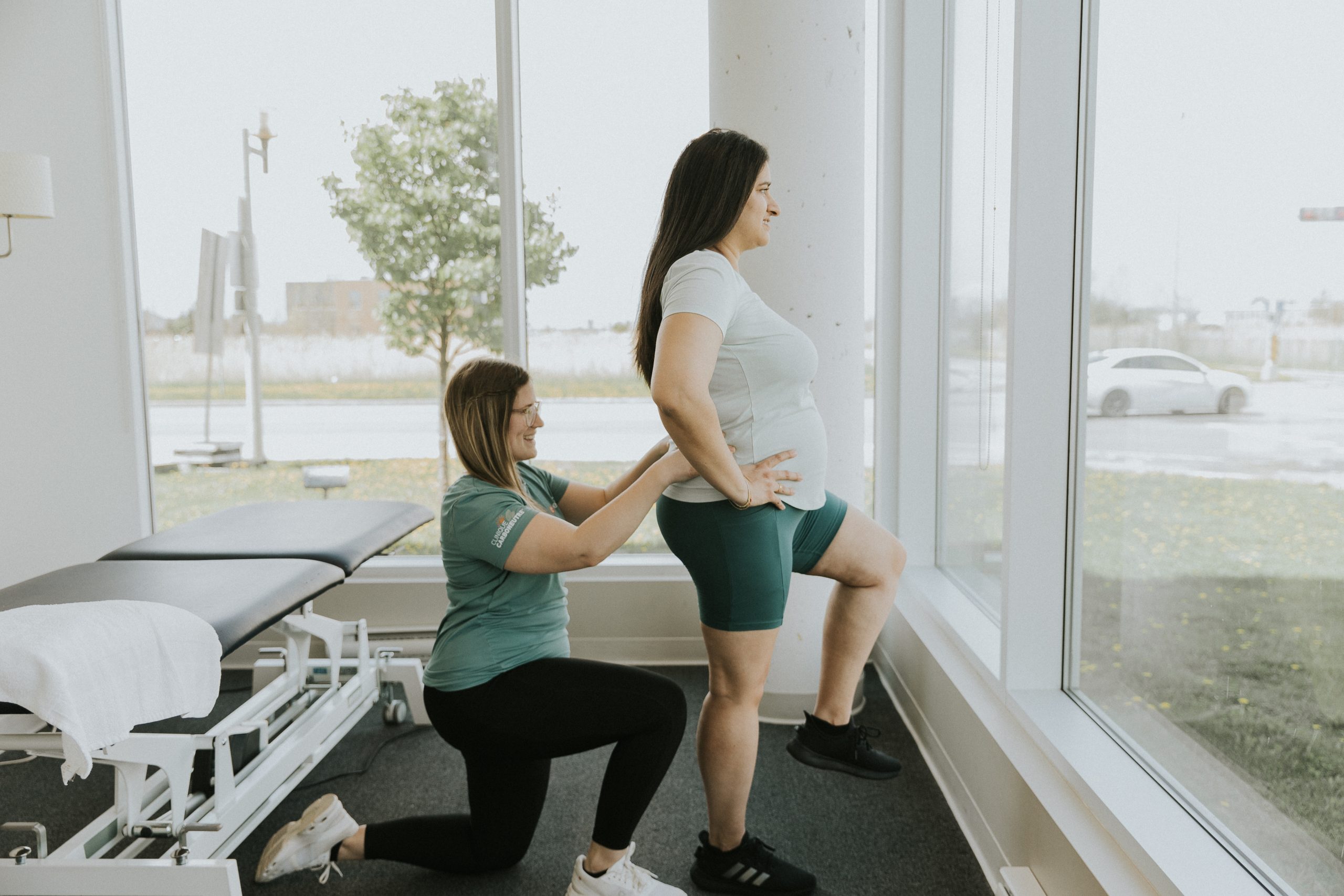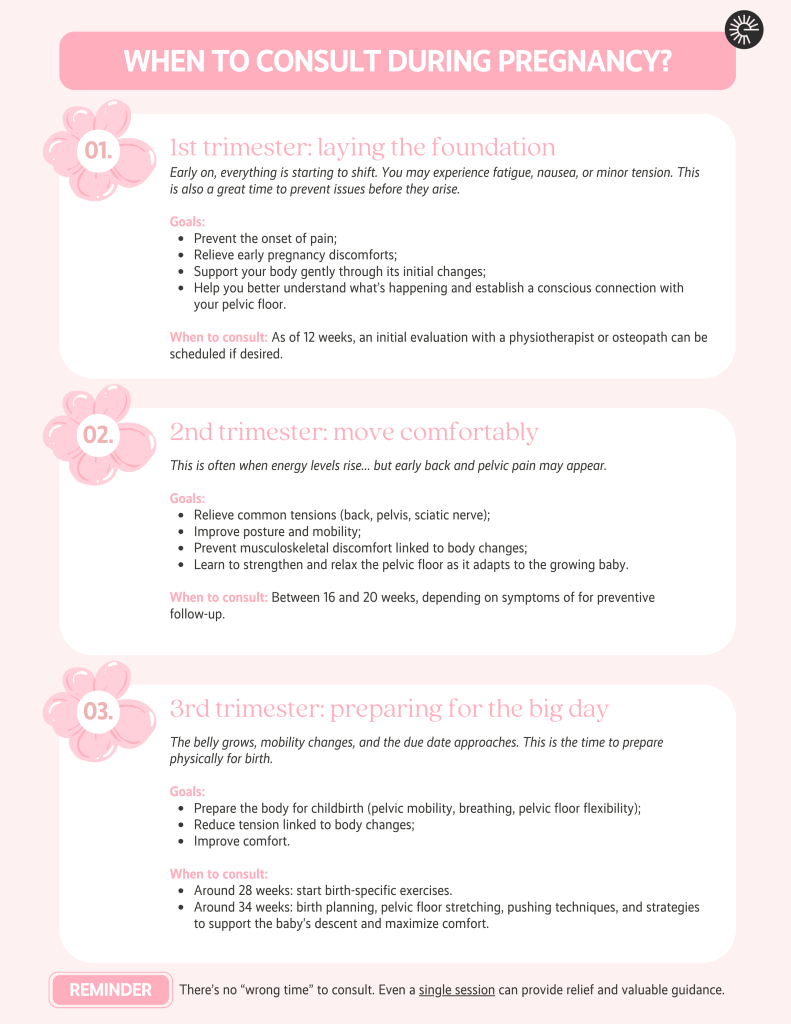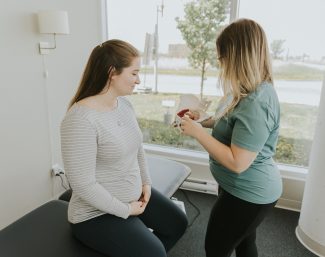
Each pregnancy is unique, but certain key stages deserve special attention to make this period more comfortable and safe. This guide will help you know when to seek perineal physiotherapy or osteopathy, two complementary approaches that can significantly improve your well-being during pregnancy and promote optimal postpartum recovery.
During pregnancy: what to pay attention to?
Why consult a pelvic and perineal physiotherapist?
- Relieve pelvic, lower back, thoracic, or sciatic pain;
- Prevent urinary or fecal leakage and incontinence;
- Strengthen the pelvic floor and prepare it for childbirth;
- Improve pelvic mobility;
- Learn breathing and pushing techniques.
Why see an osteopath?
- Relieve musculoskeletal discomfort (back, legs, pelvis, diaphragm);
- Promote good posture and better pelvic mobility;
- Reduce discomfort caused by the growing uterus;
- Optimize space for the baby.
When to consult during pregnancy?
Each trimester brings changes and new reasons to consult a pelvic floor physiotherapist or osteopath. Here’s a guide to know when a consultation can be beneficial.

Post-partum: supporting overall recovery
Pelvic and perineal physiotherapy : when to consult?
- From 6 weeks postpartum (after lochia ends);
- To assess pelvic recovery (tone, perineal and abdominal scars, pain, urinary leakage);
- To safely resume physical activity;
- In case of pain during sexual activity.
Postnatal osteopathy: why consult?
- Relieve post-birth discomforts (back, pelvis, neck, shoulders);
- Help the body regain balance;
- Support breastfeeding mothers or those carrying their baby frequently;
- Prevent chronic pain or compensatory movements.
Benefits of combined approach
Combining pelvic floor physiotherapy and osteopathy allows:
- A complementary and holistic approach;
- Better body awareness and long-lasting relief;
- Support that addresses both the physical and emotional well-being of the mother.
👉 Note: Osteopathic care can also benefit infants (plagiocephaly, digestion, sleep).
At Ekinox, we support you at every step
Our physiotherapist, who are experts in perineal rehabilitation, and our perinatal osteopaths offer compassionate support, tailored to your needs.
Our interdisciplinary team works together to guide you throughout pregnancy and postpartum.
Have questions? Contact us or book an appointment today.




